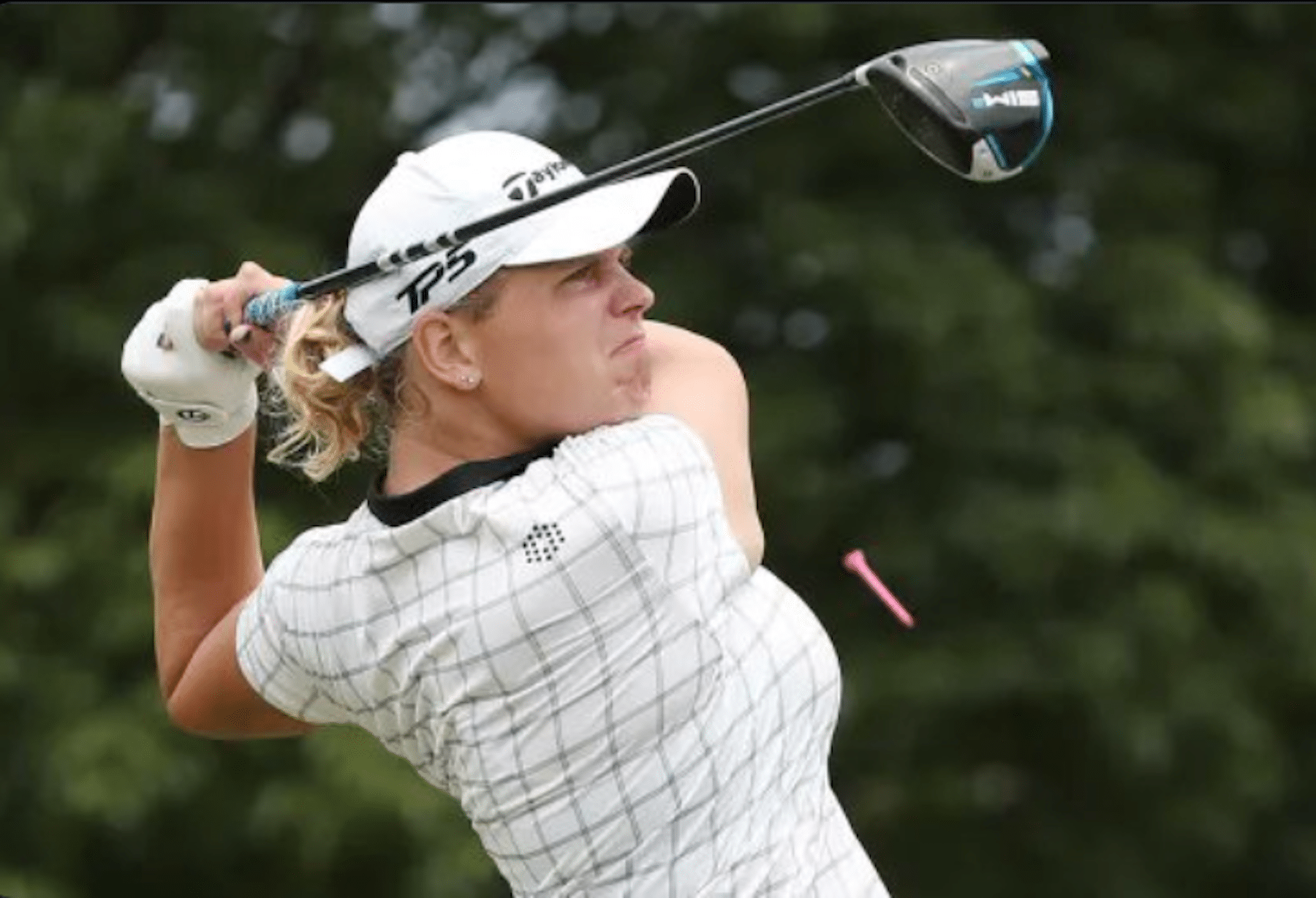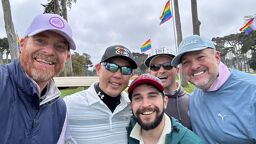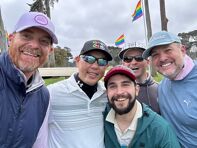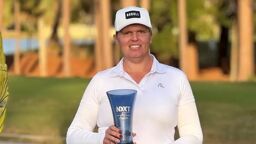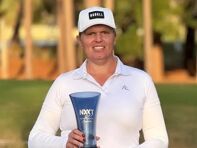For the last four years, Hailey Davidson has fought for a dream, one stroke at a time. The Scotland-born, Florida-based golfer had fought through finding her truth as a transgender woman, rekindling her love for the game and the prejudice of some in a quest for a coveted LPGA tour card.
Monday was her first tournament opportunity in two months since a regional tour banned her, and any other trans woman, from their female events.
She battled through a sectional USGA U.S. Women’s Open qualifier in Bradenton, Fla., to a three-way playoff for an alternate spot in one of the major tournaments in women’s golf. Among those also in the playoff was two-time LPGA winner Jasmine Suwannapura.
With a 25-foot putt, Davidson beat the odds again to earn first alternate. If automatic qualifiers Amalie Zalsman or Pimpsa Sisutham can’t play when the U.S. Women’s Open starts in Lancaster, Pa., on May 30, Davidson would step in and tee off.
Get off the sidelines and into the game
Our weekly newsletter is packed with everything from locker room chatter to pressing LGBTQ sports issues.
“I felt I had nothing left to lose and just went out and played my game,” Davidson told Outsports. “The hard part was bogeying two of my last three holes, along with a three-putt par on 17. So when I finished I assumed I was out of it after seeing the morning scores before going out for Round two.”
In that second round, Davidson was able to chip away as Zalsman and Sisutham both struggled through the second 18 holes of the total 36. However, a bogie at 17 stymied Davidson’s bid for a ticket to the Open, but opened the door to a possible second chance.
“I had around 1 1/2 to 2 hours to wait until finding out I was in a playoff, but my best friend caddied for me which honestly made the world of difference with me mentally and physically that day,” she said.
“Looking back, I try not to think if I just went par, par, par to finish I’d be in automatically, but rather that I stuck it out and won a playoff. It’s all about perspective.”

Perspective is a word that has become mantra in Davidson’s journey in golf and life before becoming the first transgender woman to win a professional event in 2021. A kid born with clubfoot who fought through years of surgery to be a winning golfer in high school and college. An adult who faced her truth, a transition and gamely worked her way back to golf, to pushing for every opportunity she could find up to battling at LPGA Q-School.
Two years of intense work to improve her overall game showed during this season on the regional NXXT Tour. She led the overall tour standings and was in position to gain prized exemptions on the Epson Tour, the step before the LPGA Tour.
The anti-trans contagion that seems to have caught a number of sports reached the NXXT Tour. In January the tour announced it would begin a review of the tour’s transgender policy. The review included a new round of hormone testing for Davidson and a poll of the other competing golfers on Davidson’s participation.
Davidson, with a single tour win and a number of high finishes, stated she was open to the review but also knew the underlying factor behind it.
“When I won the first time, people lost their minds and then it went away for about a year,” she said in an interview with U.K.-based Sky News on Jan. 22. “Again, it happened about a year later so this is about the third or fourth time something like this has happened.”
In March, the policy review turned into a policy change that banned all transgender women from the NXXT Tour, even a player who has conformed to all the regulations of the USGA and the LPGA like Davidson.

Monday’s finish, even as an alternate, was seen as sweet vindication.
“I knew the ban wasn’t based in any truth so I needed to prove myself and show the world I am not a quitter and will never be one,” Davidson said. “I knew if I played my game, I could play in the U.S. Open which is the highest level of women’s golf compared to the NXXT.”
“Quit” is not in the Hailey Davidson dictionary. Her Instagram page shows that definitively. It’s an array of videos of her constantly working to make her game ready for the moment she can take the fight to a tournament leaderboard.
The NXXT Tour ban may have taken away a steady slate of tournaments, but it didn’t douse her fire to play on.
“Playing again meant the world to me. Competitive golf is my life and having that taken from me [hurt] me,” she said. “The ban really [hurt] 90% of my yearly schedule so now I need to make sure to play well in the few chances I get which only makes me work harder. The opposite of what they wanted when they banned me.”
